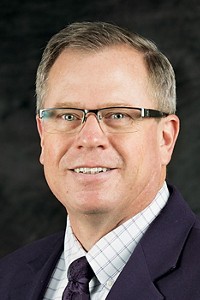Advertisement
Grab your lab coat. Let's get started
Welcome!
Welcome!
Create an account below to get 6 C&EN articles per month, receive newsletters and more - all free.
It seems this is your first time logging in online. Please enter the following information to continue.
As an ACS member you automatically get access to this site. All we need is few more details to create your reading experience.
Not you? Sign in with a different account.
Not you? Sign in with a different account.
ERROR 1
ERROR 1
ERROR 2
ERROR 2
ERROR 2
ERROR 2
ERROR 2
Password and Confirm password must match.
If you have an ACS member number, please enter it here so we can link this account to your membership. (optional)
ERROR 2
ACS values your privacy. By submitting your information, you are gaining access to C&EN and subscribing to our weekly newsletter. We use the information you provide to make your reading experience better, and we will never sell your data to third party members.
ACS Meeting News
Reflecting on the resilience of chemistry, at ACS Fall 2021
by Bibiana Campos-Seijo
September 2, 2021
| A version of this story appeared in
Volume 99, Issue 32
I dedicated my editorial last week to one of the most important themes of the American Chemical Society Fall 2021 meeting—diversity, equity, inclusion, and respect.
But the official theme of the meeting was “Resilience of Chemistry.” I expect this resonated with many of you. Over the past 18 months, many of us feel we have demonstrated a lot of personal resilience. But it’s also worth reflecting on resilience from a professional perspective, from the view of corporations and within the context of our discipline.
Under the “Resilience of Chemistry” theme, ACS’s Multidisciplinary Program Planning Group (MPPG) planned sessions such as “The Chemical Professional’s Response to the Global Pandemic,” “Women in Environmental Science and Engineering: Career Paths and Resilience,” etc.
The meeting’s opening keynotes were dedicated to resilience. In their remarks, representatives of the MPPG, Joe Pickel and David Heldebrant, explained that the theme was inspired by the story of Sisyphus. In Greek mythology, Sisyphus was punished by Zeus for cheating death and was forced to repeatedly roll a boulder up a hill only for it to roll down every time he got near the top. Sisyphus, Heldebrant said, “was pretty much the definition of resilience.”
One keynote speaker, Gerard Baillely, a senior vice president of R&D at Procter & Gamble, provided an industry perspective on chemical resilience. In his talk, “Resiliency of the Chemical Enterprise during COVID 19: Lessons for the Future,” he covered themes like the importance of partnerships and collaborations as well as investing in people and in innovation.
Baillely’s remarks were peppered with history and citations that illustrated how lessons from the past can inform the present so that we can succeed tomorrow. The city of Paris, whose motto is “Fluctuat nec mergitur,” translated loosely as “It is tossed by the waves but does not sink,” was his example of inspiration in tough times. A city born in hardship, Paris suffered many setbacks—wars, revolutions, the black death, and terrorist attacks—but it became the city we all love and admire. Its resilient citizens have always bounced back. He paralleled this trait to the beginnings of Procter & Gamble, established in 1837 by two immigrants to the US—a candlemaker and a soap maker—who joined forces in difficult times.
Baillely spoke of the need for corporations to focus on the future and the need to build a culture of innovation that allows organizations “to experiment, anticipate, and try to shape what the future could be.”
“Innovation is the antidote to tough times,” he added. And innovation, people, and leadership go hand in hand. Baillely said organizations need to invest in talent ahead of time, not during a crisis. “People are the ones that are able to learn, operate, and overcome crises, not the leaders.” Investing in talent is critical so that organizations are equipped with the right science and the right people. It is then up to organizational leaders to provide clarity of choice and strategies to unleash the wealth of knowledge and expertise. Leaders also need to support their teams by providing psychological safety, which has been especially important during the pandemic.
Baillely explained that establishing a growth mindset and a culture of lean innovation is critical. This foundation allows organizations to envision the future and respond fast. He warned, however, that “you need to fall in love with the problem, not the solution.” It’s far too easy for chemists to become enamored with the molecules they create, he noted. He even admitted to going down that path himself. But if one is in love with the solution, he argued, envisioning the future becomes harder because the future is about problems to be solved.
Views expressed on this page are those of the author and not necessarily those of ACS.



Join the conversation
Contact the reporter
Submit a Letter to the Editor for publication
Engage with us on Twitter